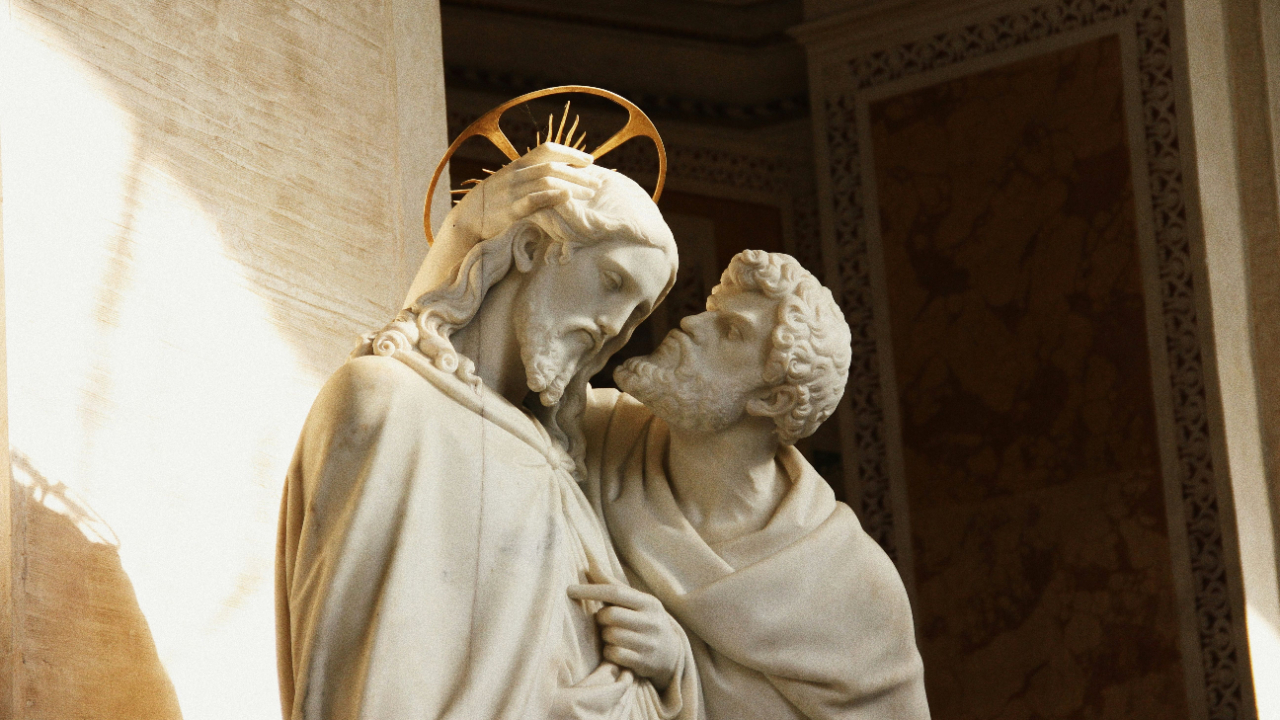From Poison to Bloom: Growing Love After Betrayal

Think about this: no one has ever been betrayed by an enemy. Enemies can bruise us, embarrass us, or oppose us - but betrayal never comes from across the battle line. There's a good reason for that - betrayal requires that a degree of trust be present in the one who commits the betrayal. We cannot experience betrayal if we have not first trusted the person who betrays us. And we don't hand our enemies trust.
At the same time, what makes betrayal so emotionally devastating is that it comes from someone we trust. The deeper the trust, the deeper the wound. We are shocked - because we trusted them. We are hurt - because we trusted them. Trust is the soil that makes the poisonous vine of betrayal possible.
The Barrier We Build
For many of us, the sting of that vine is something that we want to avoid for the rest of our lives. We convince ourselves that if we never trust again, we’ll never be wounded again. So we keep people distant, building walls around the garden of our hearts. And in one sense, it works. Walls do prevent betrayal. But they also prevent everything else. They keep out intimacy, friendship, love, and the kind of relationships that make life rich and meaningful. The very bricks we raise to protect ourselves become a stone fortress that isolates us.
What I have learned is that this reaction drives us to live our lives in avoidance rather than pursuit. We try so hard not to feel the negative that we fail to reach for the positive. We define the experience of betrayal so sharply that we devalue relationships. Somewhere in our pain, we start to believe that people are not worth the risk—that the threat of loss outweighs the gift of love.
Many people are entirely unaware that they’ve made this choice. Further betrayal may be a risk, but the joy of living in healthy, thriving relationships makes those risks worth it.
Living Behind the Wall
So how do you know? What are the signs that you’ve chosen to live behind the garden wall because you’re afraid of that poisonous vine creeping back in? How can you tell if you’re avoiding betrayal rather than cultivating relationships?
Here are a few indicators that you might be living in avoidance:
- You keep people at arm’s length, even those who’ve given you no reason to doubt them.
- You interpret kindness with suspicion, assuming it hides some ulterior motive.
- You rarely open up about your real struggles or needs, because vulnerability feels dangerous.
- You tell yourself you’re “independent” when, in truth, you’re just closed off.
These patterns don’t protect us nearly as much as we think they do. They keep out hurt, yes—but they also keep out healing.
Dismantling the Wall
What do you do when you realize you’ve been living a guarded, walled-off life? The first instinct is often to try to tear the whole thing down at once. But walls built over the years rarely crumble in a day. More often, it begins with small, deliberate steps.
We often underestimate the power of intentional steps. Learning to trust again is a process—trust is rebuilt brick by brick. It might look like sharing a small part of your story with someone, or saying yes to an invitation when everything in you wants to stay home. It might be allowing yourself to accept kindness without immediately questioning the motive behind it.
Don’t discount the power of small steps. They may not seem like much, but each one weakens the wall and opens your heart a little wider to the possibility of healthy, thriving relationships.
This Sunday, I preached on Ittai the Gittite—a man who demonstrated remarkable loyalty to David in the very moment David was reeling from betrayal by his son Absalom. And in three weeks, we’ll begin a series at church on trust and forgiveness, because so many in our church family have asked for teaching in this area. More and more, I’m realizing how deeply people long for help in tearing down walls and giving love a chance to bloom again.
If you’ve been betrayed in the past and know you need to love again, take a small step. A healthy relationship is worth the risk—and I believe you’ll discover that to be true.

